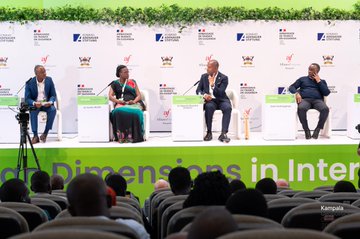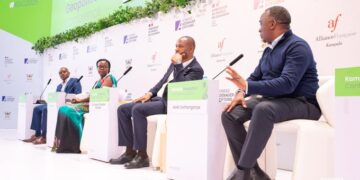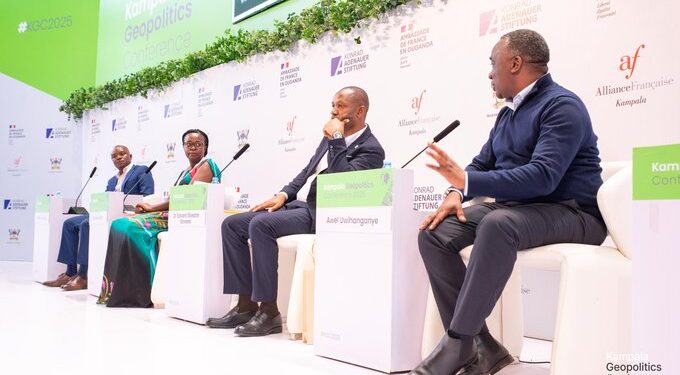U.S. President Donald Trump’s return to the White House and his renewed “America First” approach on Thursday sparked debate amongst scholars, policymakers, and civic leaders at the Kampala Geopolitics Conference 2025 held at Makerere University.
Under the theme “U.S.-Africa Relations 2025–2029: Assessing Trump’s ‘America First’ Approach to Africa and Global Development,” the panellists delivered a candid and at times confrontational analysis of shifting U.S. foreign policy and its implications for the continent.
Awel Uwihanganye, a policy entrepreneur and co-founder of the LéO Africa Institute, didn’t mince words, describing Trump’s worldview as “rooted in white supremacy.”
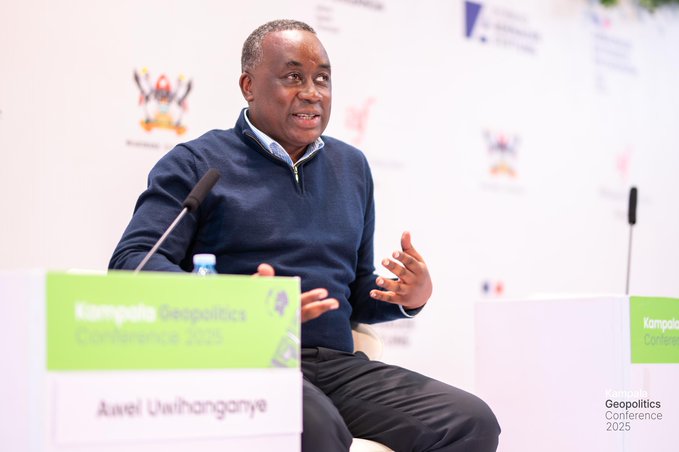
“Trump’s ideology is rooted in white supremacy — designed to uphold a worldview centred on white dominance,” Uwihanganye said. “It’s no surprise he doesn’t view Africa as a key strategic partner in global development.”
Uwihanganye, who doubles as the Chief Advancement Officer/Deputy Chief International Relations at Makerere University, challenged African leaders to stop playing the victim card and take bold steps toward autonomy.
“We must stop perpetuating the narrative that Africa is vulnerable and always in need of saving,” he emphasised. “It’s time to look within, harness our potential, and define homegrown solutions that serve our people.”
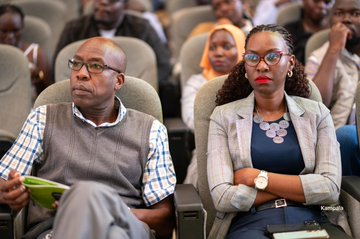
He even framed potential aid cuts under a second Trump administration as an unexpected opportunity: “US aid cuts may be a blessing in disguise — a wake-up call. It’s time Africa reimagined global partnerships and embraced models that build self-sufficiency, not dependency.”
Dr Edward Silvestre Kaweesi, Senior Lecturer in the Department of Political Science and Public Administration at Makerere University, contextualised Trump’s policy in a broader historical framework.
“Since 1945, internal political transitions in the USA have consistently translated into global contradictions,” he argued. “Presidents like Bill Clinton also caused international contradictions, like extending NATO to the Eastern part of the world.”
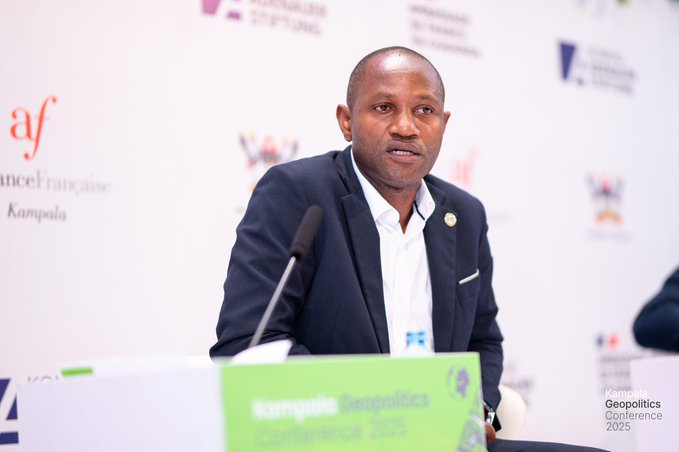
Dr Kaweesi noted that Trump’s isolationist policies are not without precedent but come at a time of deep global uncertainty.
“Trump is rewriting the entire humanitarian consensus on which we have depended for the past 40 years,” Dr Kaweesi said. “What we ought to be discussing today is how Africa is going to survive without the long-standing helping hand of developed nations like the USA, Europe, and the United Nations.”
He added that even presidents lauded for diplomacy, like Obama, made controversial decisions. “We all thought that Barack Obama was going to be a different president,” Kaweesi remarked. “Yet, while he scaled down troops in Afghanistan, he increased the use of war drones, causing greater devastation.”
Dr. Eunice Akullo, Lecturer in the Department of Political Science and Public Administration at Makerere University, took a more nuanced view of the conversation, pointing to contradictions within Africa’s own discourse.
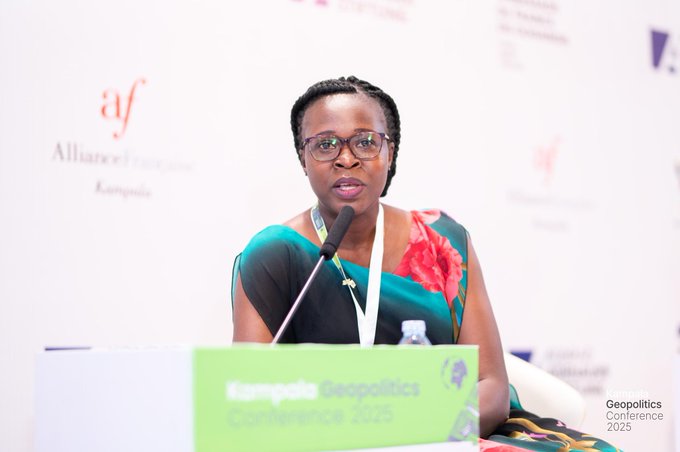
“It is an irony, from Pan-Africanists, who strive to be self-sufficient as Africans, but now that Trump’s administration has cut down aid, we are up in arms,” Akullo observed. “It presents Pan-Africanists as double-minded.”
She argued for a strategic reset of Africa’s diplomatic posture: “We often assume aid comes from a perfect, unbiased system — but Trump has shown otherwise. As Africans, rich in raw materials, we must position ourselves strategically to negotiate mutually beneficial partnerships, not handouts.”
Akullo also challenged simplistic views of Africa as a monolithic bloc. “There is an ignorant tendency for people to think of Africa as one country,” she said. “Yet the continent is not homogeneous. Kenya’s advantages are different from those of Uganda, even from an international trade point of view. The US will not negotiate with Africa as a whole. It will engage with different African states and coin partnerships with each one depending on their unique interests.”
